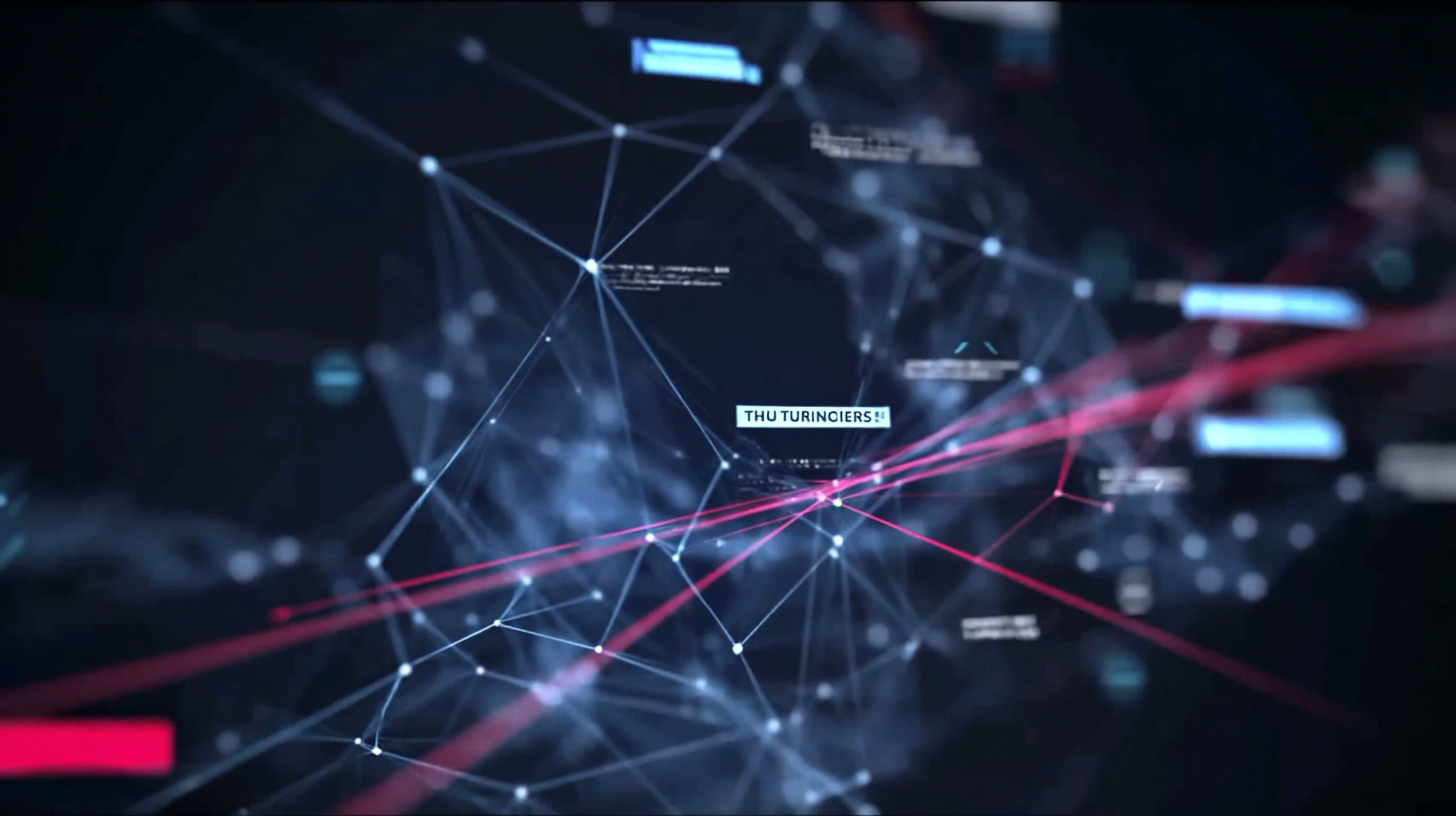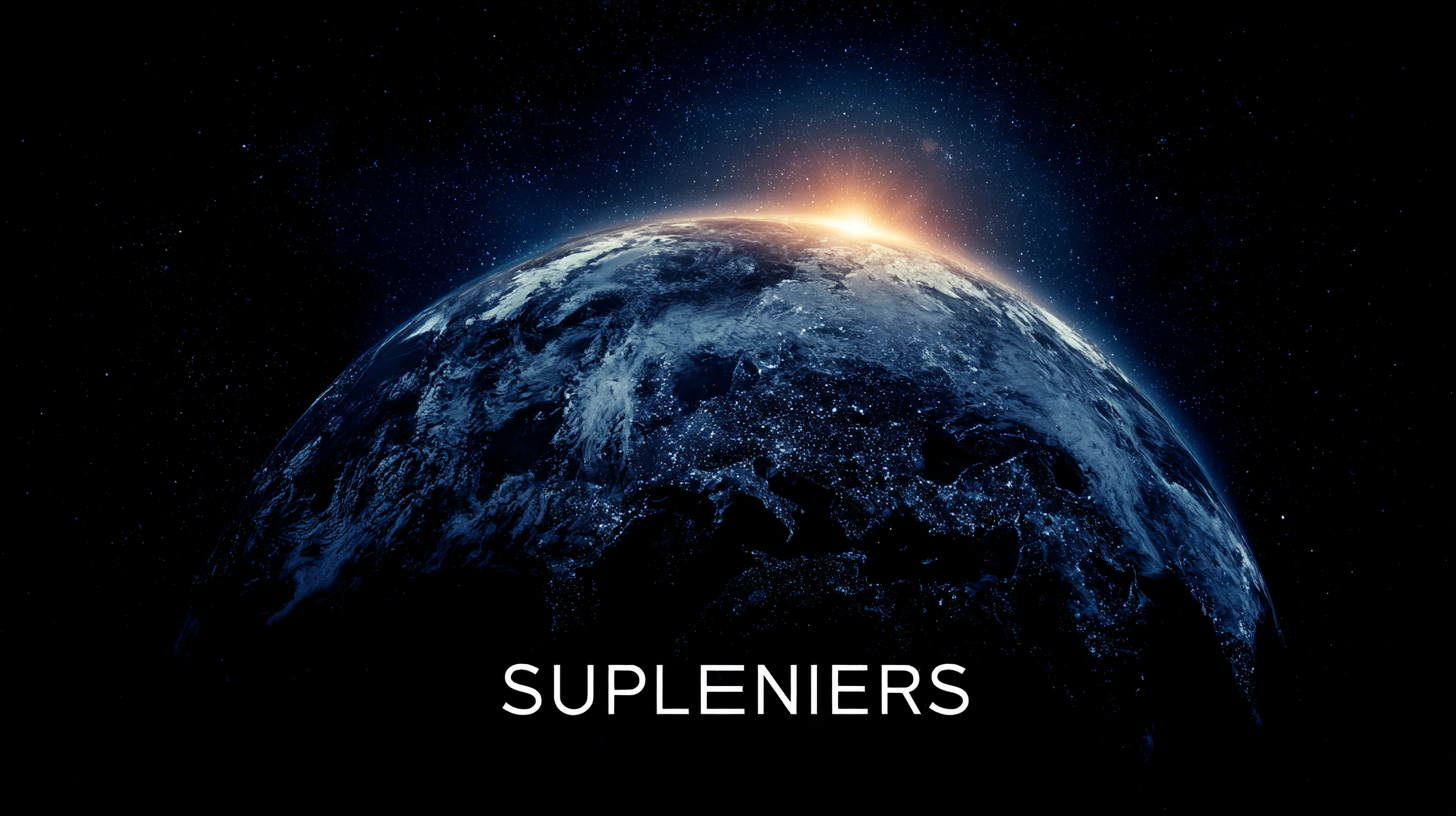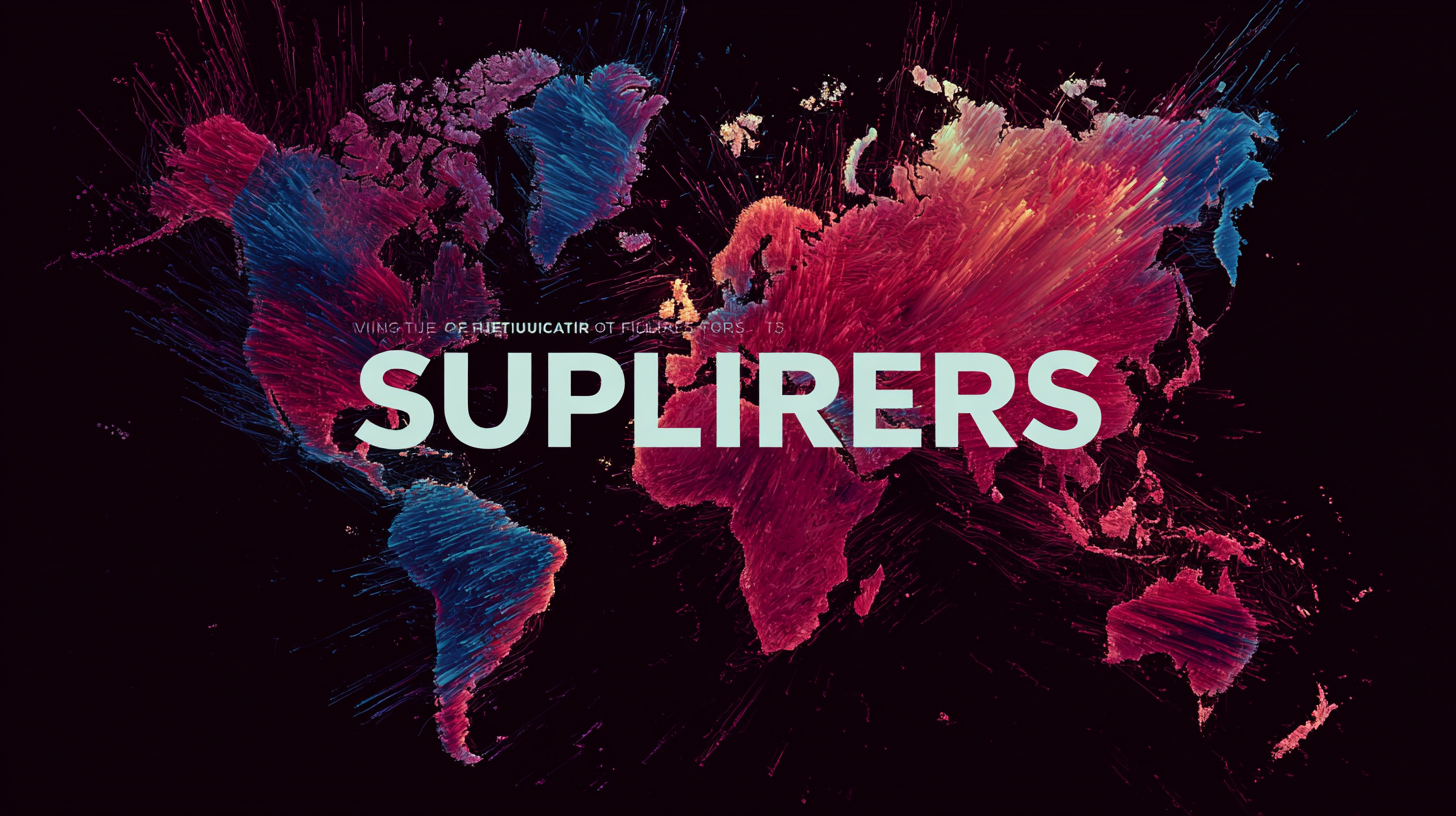
Exploring the Future of Global Procurement with Best Suppliers in Technology Trends 2025
In an era where technology and globalization intertwine, the landscape of global procurement is undergoing a significant transformation. As we explore the future of procurement with an emphasis on the best suppliers, particularly in the context of 2025, it becomes increasingly evident that the key to success lies in fostering strong partnerships and embracing innovative technology trends. The phrase "精工细造,中国制造,服务世界" reflects the craftsmanship and dedication of Chinese manufacturers as they seek to meet the demands of a global market.

This blog delves into how strategic collaborations with suppliers can enhance efficiency, drive sustainability, and ultimately revolutionize procurement processes. As we look ahead, understanding the evolving roles of suppliers will be crucial in navigating the complexities of a rapidly changing economic environment while positioning businesses for long-term success.
The Impact of AI and Automation on Global Procurement Strategies by 2025
As we approach 2025, the landscape of global procurement is set to be profoundly transformed by artificial intelligence (AI) and automation. These technologies are not merely enhancing efficiency; they are redefining the very strategies that organizations employ to source materials and services. By leveraging AI algorithms, procurement teams can analyze vast datasets to identify optimal suppliers, predict price fluctuations, and minimize risks. This shift allows companies to make informed decisions rapidly, ensuring they remain competitive in a fast-paced global market.

Automation is equally pivotal in streamlining procurement processes. Robotic Process Automation (RPA) minimizes manual tasks, such as invoice processing and order management, allowing procurement professionals to focus on strategic initiatives. Furthermore, integrating AI with automation can enable predictive analytics, enhancing supplier management and establishing stronger relationships based on data-driven insights. By 2025, organizations that adopt these technologies will not only achieve cost savings but will also enhance their agility and responsiveness to market changes, positioning themselves as leaders in global procurement strategies.
Leveraging Data Analytics for Enhanced Supplier Selection and Risk Management
In the ever-evolving landscape of global procurement, leveraging data analytics is becoming imperative for organizations aiming to enhance supplier selection and manage risks effectively. With an overwhelming amount of data available, companies can utilize advanced analytical tools to assess supplier performance, track market trends, and identify potential risks before they escalate. This proactive approach not only streamlines the procurement process but also empowers decision-makers to make informed choices that align with their strategic goals.

Furthermore, the integration of data analytics facilitates a more nuanced understanding of supplier capabilities and reliability. By analyzing historical data and real-time metrics, businesses can pinpoint the best suppliers who meet their specific needs while minimizing uncertainties. Going beyond traditional methods, this data-driven strategy equips organizations with the insights required to navigate the complexities of global supply chains, ensuring they remain competitive and resilient in the face of disruptions. Embracing these technological trends, businesses will position themselves at the forefront of procurement excellence.
Sustainability Trends: How Green Procurement is Shaping Supply Chains in 2025
In 2025, green procurement is poised to redefine supply chains, driven by a collective commitment to sustainability. Businesses are increasingly recognizing that eco-friendly practices not only benefit the environment but also enhance brand loyalty and customer trust. By adopting sustainable sourcing strategies, organizations can minimize their carbon footprint while optimizing their resources. This transformation encourages collaboration among suppliers who share a passion for environmental responsibility, leading to a more resilient supply chain.
**Tip:** Prioritize suppliers who are certified for sustainability practices. Certifications can serve as a reliable marker of a supplier's commitment to green initiatives. Engage suppliers in discussions about their environmental impact and understand how they manage waste and energy usage.
As companies integrate sustainability into their procurement processes, technology’s role becomes critical. Digital platforms can help track and measure sustainable practices, providing valuable insights into supply chain performance. This shift not only enables better decision-making but also facilitates transparency, making it easier for businesses to communicate their sustainable efforts to stakeholders.
**Tip:** Utilize data analytics to assess supplier performance regularly. Identifying areas for improvement can help ensure compliance with sustainability goals, ultimately creating a more efficient and eco-conscious supply chain.
Global Procurement Trends in Sustainability - 2025
The Role of Blockchain in Ensuring Transparency and Traceability in Procurement
In today's rapidly evolving procurement landscape, blockchain technology is emerging as a game-changer, providing unparalleled transparency and traceability. By utilizing blockchain, organizations can create a trustworthy environment where all stakeholders can verify transactions and track products throughout the supply chain. This enhanced visibility not only strengthens supplier relationships but also fosters collaboration through shared data, ultimately leading to more efficient procurement processes.
Tips for Implementing Blockchain in Procurement:
- Ensure robust onboarding for stakeholders to facilitate data sharing and enhance trust within the ecosystem.
- Invest in training for teams to understand blockchain technology and its applications in procurement, ensuring everyone is aligned with the new systems.
- Regularly assess and adapt your blockchain strategy to keep pace with technological advancements and industry best practices.
With increasing attention from governments and organizations alike, including plans to integrate blockchain into aid distributions, it's clear that this technology is more than just a trend; it’s a vital tool for revolutionizing procurement, paving the way for a transparent and efficient future. As businesses look to enhance their operational integrity, leveraging blockchain will be key in tackling challenges such as food fraud and ensuring sustainable supply chains.
Emerging Technologies: Adapting to the Digital Transformation in Global Supply Chains
As we move deeper into the digital age, global procurement is experiencing a transformative shift driven by emerging technologies. The integration of artificial intelligence, machine learning, and blockchain into supply chains is not just a trend; it’s a necessity for businesses that seek resilience and efficiency. These technologies enable enhanced data analysis, predictive modeling, and real-time visibility, allowing procurement managers to make informed decisions and respond swiftly to market changes.
In 2025, the focus will be on how organizations adapt these technologies to streamline their operations and improve collaboration with suppliers. Smart contracts powered by blockchain promise to reduce transaction costs and increase transparency, while AI can optimize inventory management and demand forecasting. As global supply chains become more complex, leveraging these digital tools will be crucial for companies aiming to maintain competitiveness and ensure sustainability. The ability to harness these innovations will define the leaders in procurement, paving the way for a more agile and responsive supply chain framework.
